What is the Department of Health and Human Services?
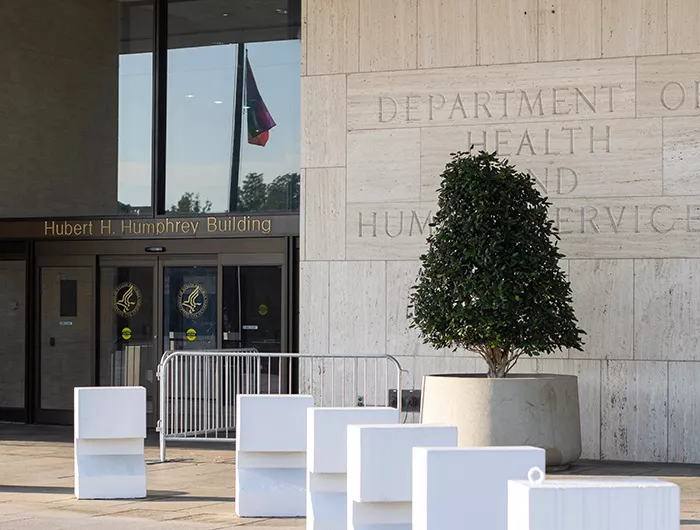
Tada Images - stock.adobe.com.
Health Secretary Robert F. Kennedy Jr. has cut thousands of jobs from the Department of Health and Human Services (HHS) and has proposed a major reorganization. But without understanding what the agency does and how it works, it’s hard to understand what these cuts and reorganization mean. Here's what you should know about HHS, the department's organizational structure, and its importance in public health and food safety.
Overview of HHS
The Department of Health and Human Services (HHS) is a sweeping federal department covering everything from health research, disease prevention, food and drug safety, and Medicare and Medicaid distribution. In fiscal year 2025, the department had an annual budget of $1.06 trillion, the highest level of spending of any federal department or agency. The proper functioning of HHS is essential for preventing diseases, protecting our nation’s food and drug supply, and providing medical services to millions of people.
However, Health Secretary Robert F. Kennedy, Jr., and the Trump administration have undercut this crucial mission. RFK has already fired thousands of federal workers—including from critical programs such as lead poisoning prevention and other environmental health initiatives. The Trump administration has also circulated chaotic reorganization plans, deleted important government documents from the internet, disbanded food safety advisory committees, and terminated grants in a politically-driven manner.
Key offices and centers within HHS oversee so many aspects of our nation’s health, nutrition, and drug safety programs that it’s hard to see how cutting any roles, let alone thousands, can protect Americans’ health and safety.
What is the Centers for Disease Control and Prevention (CDC)?
The CDC is a major division of HHS responsible for conducting research into diseases and other threats to public health. Based in Atlanta, Georgia, the CDC conducts research into a wide range of public health topics, including outbreaks analysis and forecasting, infectious disease threats, immunization, chronic disease prevention, developmental disabilities, environmental health, toxic substances, HIV and STD prevention, injury prevention, health workforce, health care infrastructure, health statistics, and more.
What is the Centers for Medicare and Medicaid Services (CMS)?
The CMS is responsible for distribution of Medicare, Medicaid, and other federal health care programs. A significant portion of CMS’s budget goes toward administering Medicare, a federal program providing health insurance coverage for individuals age 65 or older, as well as adults younger than 65 who have certain covered disabilities. The agency also administers Medicaid and the Children's Health Insurance Program (CHIP), both of which provide health insurance coverage to millions of low-income individuals and families. CMS is also responsible for implementing initiatives to ensure health care quality for Medicare beneficiaries through public reporting and accountability. Moreover, CMS’s Center for Consumer Information and Insurance Oversight (CCIIO) handles implementation of many of the changes to the US health insurance system under the Affordable Care Act, including assisting states in establishment of state-level health insurance marketplaces and conducting oversight of private insurance coverage.
What is the National Institutes of Health (NIH)?
The NIH is a national leader in conducting research related to health, diseases, and disabilities. NIH’s research portfolio covers topics including cancer prevention, genetics, aging, infectious diseases, child development, diabetes, environmental health, substance abuse, mental health, and more. A substantial portion of NIH’s budget goes toward grants for scientific research, providing funding to thousands of researchers and universities across the US. The agency also has its own research staff, many of whom work at laboratories on the NIH campus in Bethesda, Maryland.
What is the Food and Drug Administration (FDA)?
The FDA is the main federal administration responsible for oversight of the safety of our nation’s food and drug supply. The FDA regulates a wide range of substances and products, including foods, additives in foods, dietary supplements, infant formula, cosmetics, prescription and over-the-counter drugs, pet and livestock food, tobacco products, human vaccines, medical products and devices, radiation-emitting devices, and more. To carry out this mission, the FDA is responsible for inspecting the manufacturing facilities of products that fall under its jurisdiction, such as food processing plants, produce and dairy farms, and drug manufacturing facilities. The department also conducts research and evaluation of the nation’s food and drug supply to ensure the safety and effectiveness of products. Under its food and nutrition work, the FDA is also responsible for educating consumers on dietary advice, encouraging a more healthful food supply, and regulating food packaging, including the Nutrition Facts Label, allergen information, and claims that food manufacturers make on product labels.
Other key HHS offices
Although we have listed some of the most important offices and administrations within HHS, other offices are essential for research, implementation, and funding distribution for federal health programs. It is important to note that Health Secretary Robert F. Kenney Jr. has announced a reorganization of HHS that could affect some of the divisions listed below.
- Administration for Children and Families (ACF): Issues cooperate agreements and other grants to support the well-being of children, families, and vulnerable communities
- Administration for Community Living (ACL): Provides support for people with disabilities and older adults
- Office of the Assistant Secretary for Health (OASH): Houses programs related to health and disease, climate change, health equity, HIV/AIDS, infectious disease prevention, COVID-19 research, and health of marginalized groups
- Agency for Healthcare Research and Quality (AHRQ): Conducts research on and aims to improve health care distribution, health services, and health systems
- Office of the Assistant Secretary for Legislation (ASL): Communicates and liaises with Congress
- Advanced Research Projects Agency for Health (ARPA-H): Awards funding for research related to health, disease preventing, and biomedical innovation
- Administration for Strategic Preparedness and Response (ASPR): Supports the nation’s preparedness for public health emergencies and natural disasters
- Agency for Toxic Substances and Disease Registry (ATSDR): Researches, investigates, and addresses environmental hazards and exposure to toxic substances
- Health Resources and Services Administration (HRSA): Supports the health of individuals who are isolated or who lack sufficient resources, and strengthens health care infrastructure of communities
- Indian Health Services (IHS): Provides health care to and supports the health of federally recognized tribes
- Substance Abuse and Mental Health Services Administration (SAMHSA): Administers programs related to substance abuse and mental health
HHS administrative offices
Other offices within HHS provide key administrative and programmatic support. It is important to note that Health Secretary Robert F. Kenney Jr. has announced a reorganization of HHS that could affect some of the divisions listed below.
- Office of Intergovernmental and External Affairs (IEA): Connects HHS to nongovernmental entities as well as state, local, and tribal governments; facilities partnerships between HHS and external organizations
- Office of the Assistant Secretary for Administration (ASA): Manages human resources and provides administrative support
- Office of the Assistant Secretary for Financial Resources (ASFR): Manages budget, finance, and grants of HHS
- Office of the Assistant Secretary for Planning and Evaluation (ASPE): Provides policy support, analysis, and strategic planning
- Office of the Assistant Secretary for Public Affairs (ASPA): Manages public affairs guidance and public communications
- Office for Civil Rights (OCR): Educates the public on and enforces federal legislation related to civil rights, as pertaining to health
- Departmental Appeals Board (DAB): Resolves disputed agency decision-making
- Office of the General Counsel (OGC): Provides legal advice and representation in furtherance of HHS’s mission
- Office of Global Affairs (OGA): Facilities relationships between HHS and international actors, and coordinates US leadership and policy on global public health
- Office of Inspector General (OIG): Aims to improve the efficiency of HHS, detect and prevent fraud, and ensure regulatory compliance
- Office of Medicare Hearings and Appeals (OMHA): Adjudicates appeals related to coverage claims under Medicare
- Office of the Assistant Secretary for Technology Policy/Office of the National Coordinator for Health Information Technology (ASTP): Supports innovation and adoption of novel health information technologies and electronic health information exchanges
- Office of the Chief Information Officer (OCIO): Manages information technology across HHS
Help protect public health today
Today, our health is under threat like never before. The Trump administration taken a chainsaw to our public health institutions and is defunding and undermining the programs that keep us safe—giving corporations free reign over our food and health. And the administration is perverting the tools of federal power to wage an all-out assault on equity, workers, the environment, and public health—and consequently, risking making people and the planet sicker.
The Trump administration’s cuts to HHS have made it harder for the remaining staff at the CDC and the FDA to contain outbreaks, conduct research, and improve nutrition. Stand up against these cuts by signing the petition now.
CSPI is your food & health watchdog
We envision thriving communities supported by equitable, sustainable, and science-based solutions advancing nutrition, food safety, and health.
As a nonprofit organization that takes no donations from industry or government, CSPI relies on the support of donors to continue our work in securing a safe, nutritious, and transparent food system. Every donation—no matter how small—helps CSPI continue improving food access, removing harmful additives, strengthening food safety, conducting and reviewing research, and reforming food labeling.
Please support CSPI today, and consider contributing monthly. Thank you.
The latest about HHS
What changed in the new Dietary Guidelines & why it matters
Healthy Eating
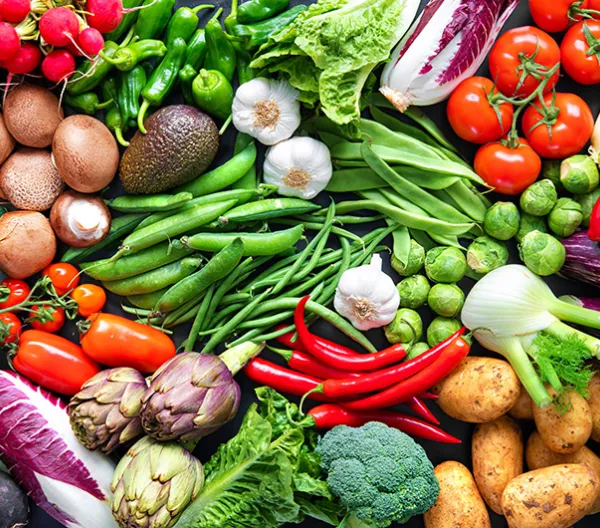
5 things we want to see in the 2025 Dietary Guidelines
Healthy Eating

NIH Grants Termination
Litigation
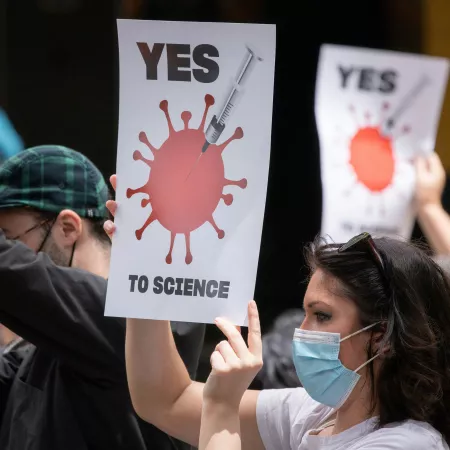
Inside the high-stakes battle over vaccine injury compensation, autism, and public trust
Vaccines
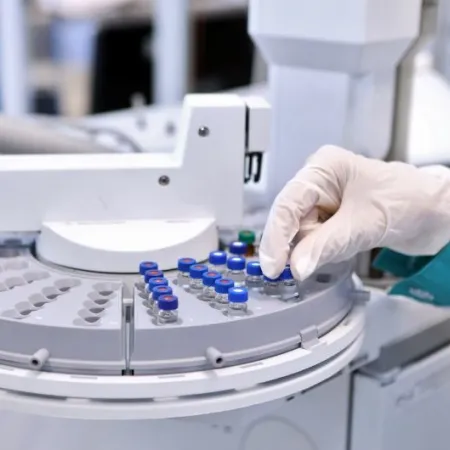
Trump distorts facts on autism, Tylenol, and vaccines, scientists say
Government Accountability
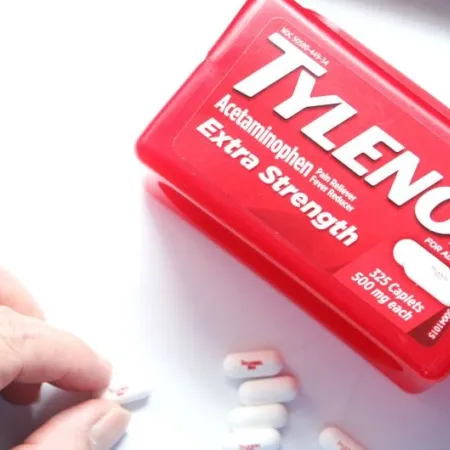

Stirring the Pot
Join the fight for safer, healthier food
Sign up to receive action alerts and opportunities to support our work in Stirring the Pot, our monthly newsletter roundup.
How CSPI is fighting threats to public health
CSPI supports protecting sensitive locations from immigration enforcement
Government Accountability

The USDA’s Food Security Survey is irreplaceable
Government Accountability
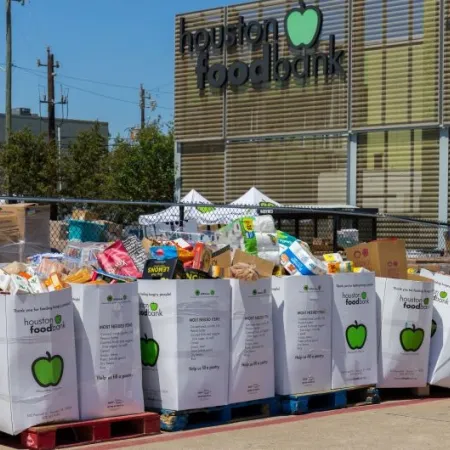
What changed in the new Dietary Guidelines & why it matters
Healthy Eating

CSPI in 2025: Advancing food safety & public health for all
CSPI

5 things we want to see in the 2025 Dietary Guidelines
Healthy Eating


